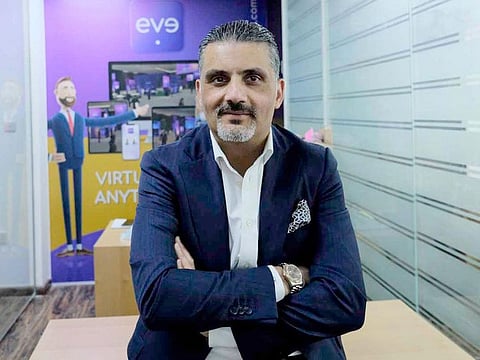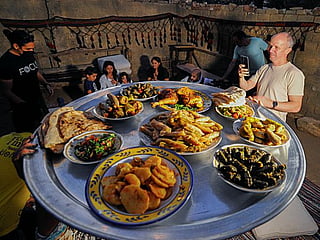For Dubai 3D startup Entourage, the future is around 'hybrid events'
Return of in-person mega-events comes with hybrid opportunities, says Entourage's Tayem

Dubai: Starting Sunday, Dubai will be hosting its first major in-person exhibition of the year – the Arabian Travel Market. It will set the marker on how the city gets back to being the destination of choice for mega-events and more – even with all the guidelines required to keep COVID-19 at bay.
Abu Dhabi has already been on this road, having earlier this year hosted the biennial IDEX (International Defence Exhibition). So, as the UAE and its destinations prepare for a return of in-person events, what would it mean for the virtual exhibition business?
In the second-half of 2020, 3D-based virtual events were all the rage, and it was felt that these would be around well after the world bids farewell to all vestiges of the COVID-19. Have virtual events outlived their use too soon?
Mohammed Tayem, founder and CEO of eve virtual, which is a heavy hitter in anything that’s three-dimensional, is not too concerned about all that negative chatter. That’s because there’s always going to be a place for hybrid events, even after the pandemic.
“Live events play a major role in the economy of the GCC region, especially UAE and Saudi,” said Tayem. “With the current situation, we have seen demand for virtual events grow rapidly; but people have been introduced to hybrid events. Now, the hybrid format is playing a major role in demonstrating the importance of reach and conversion.
“So, as per market sentiments, 3D-based event platforms are just beginning to scratch the surface.”
Hybrid element
Even at next week’s ATM 2021, there will be a hybrid component, with the conferences following the exhibitions adopting the virtual format. In that regard, Tayem’s contention of hybrid options sitting alongside in-person events rings true.
There are also possibilities beyond trade shows. “The Emirati singer, Balqees Fathi, launched her album on eve virtual and the platform was capable to host more than 650,000 attendees who interacted heavily with the artist and could make their avatars dance,” he added. “The attendees were able to meet others who were on the platform and enjoyed a surprise from Balqees when she picked a few fans and surprised them with video calls.
“I would definitely agree COVID-19 gave us a great opportunity pushed us to take steps in different directions, which made us study the virtual events business and led to developing eve as a 3D virtual platform.”
Alternative to videocon
The virtual hosting platform launched in July last year, and proved an effective replacement for the video conferencing tools that were in peak deployment at the time. With eve, ‘attendees’ could simulate an event environment. On eve, from the registration to the actual sessions, all of the activity is done within a 3D virtual environment with personalized avatars and integrated communication tools.
This was how the utility industry focussed WETEX exhibition was ‘hosted’. “We created 85,000 square metres of virtual space, 400 exhibition stands, four areas, six stages with participation from 63,000 people,” the CEO said.
Mimic the real world
“The key difference is how to utilize a technology you have developed and start enhancing it to cater to other businesses and the future. eve, when it started, was meant to have the 3D environment as a cutting-edge, but today caters not just events. Recently, we launched holographic presentations to make the speakers presentations more engaging for the audiences.
“The 3D world has advanced, especially with virtual reality (VR). Taking that principle, we designed a platform that can mimic real-world experiences. This opened a lot of door for creativity - since anything imaginable can be built on 3D with a good designer.
“We have also introduced readymade templates for 3D events - these simplify the process of creating and launching the event and it can be done in less than a week. And we are getting into 2D events very soon.”
Tayem and eve sure have covered all bases… and then there's always the hybrid option.
Sign up for the Daily Briefing
Get the latest news and updates straight to your inbox









